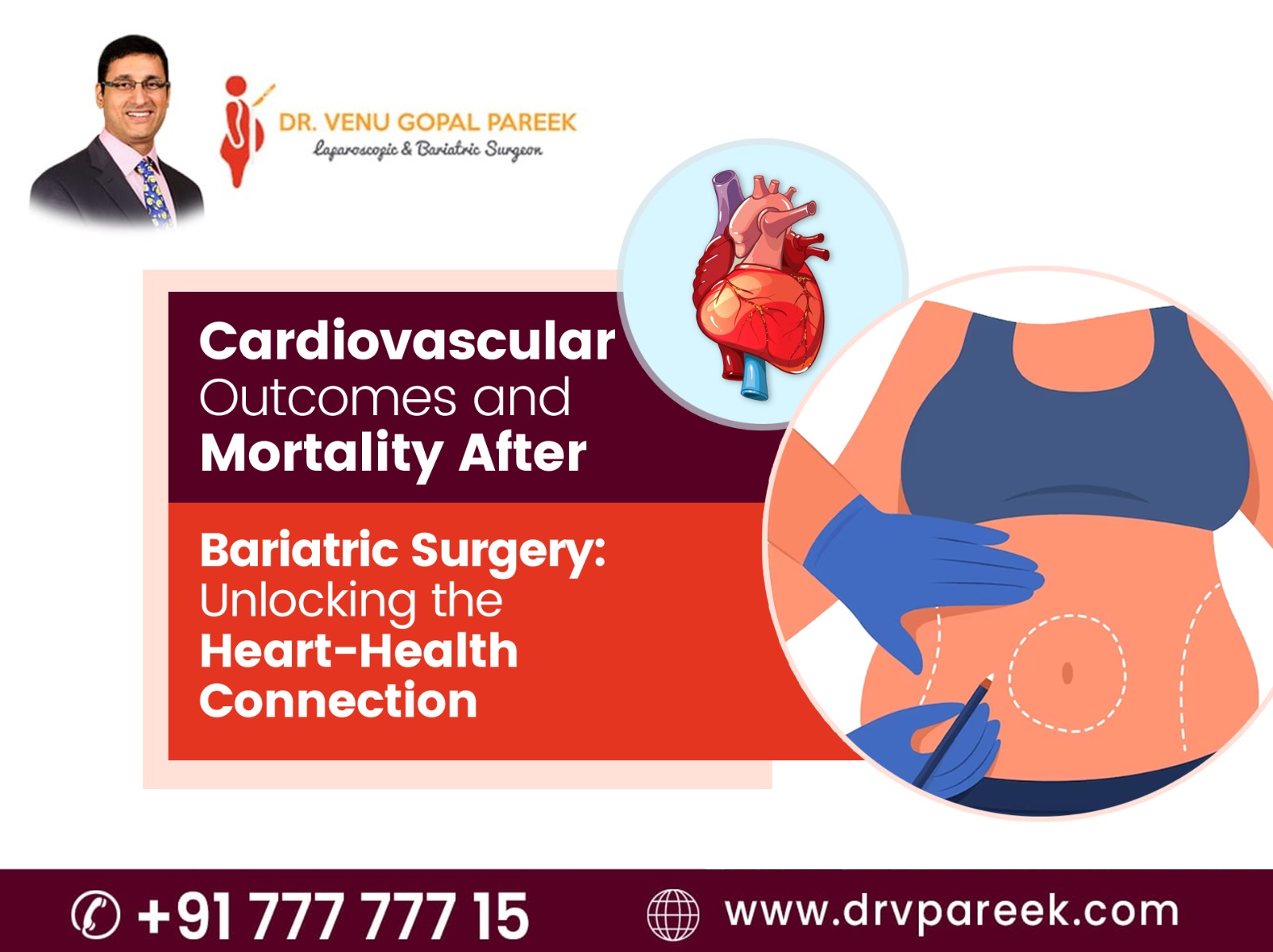
Cardiovascular Outcomes and Mortality After Bariatric Surgery
Over the past few years, bariatric surgery (weight loss surgery) has gained significant popularity as a promising treatment for weight loss and other obesity-related health risks. According to some researchers, in addition to weight loss, bariatric surgery may have a great positive influence on cardiovascular outcomes and mortality rates.
In this blog, we will discuss the unique relationship between bariatric surgery and heart health. Also provides insights into improved mortality outcomes following bariatric surgery.
Understanding Cardiovascular Problems & Obesity:
Obesity and cardiac problems are closely related, which can cause serious health problems. Obesity is among the primary risk factors that can develop various heart conditions such as hypertension, coronary artery disease (CAD), and heart failure. This is because being overweight puts extra strain on the cardiovascular system. Obese people are at higher risk of developing hypertension, dyslipidemia, insulin resistance, and inflammation, which may lead to heart diseases.
The accumulation of visceral body fat (hidden fat) might result in the narrowing of blood vessels, poor blood flow, and the formation of plaque in arteries. So treating obesity is very important for preventing and managing heart problems.
Bariatric procedures such as gastric bypass and sleeve gastrectomy are popular procedures that not only help in weight loss but also appear to be effective in managing various cardiovascular problems.
After bariatric surgery, you may observe reduced blood pressure, improved lipid profiles, and improved glycemic control. These changes can reduce the long-term cardiovascular burden that obese people have to deal with.
Cardiovascular Outcomes:
Following bariatric surgery, cardiovascular outcomes exhibit positive improvements:
- The incidence of cardiovascular events like heart attacks and strokes has been reduced
- Weight loss gained from bariatric surgery helps in lowering the risk of developing heart problems, high blood pressure(BP), dyslipidemia, and insulin resistance.
- Improved glycemic control and metabolic parameters
These positive changes will eventually promote better cardiovascular health and reduce cardiovascular problems. Bariatric surgery proves its potential for improving long-term cardiovascular outcomes, highlighting that it plays an essential role that goes beyond weight loss.
Mortality Rates:
The long-term health advantages of these treatments can be better understood by looking at mortality rates following bariatric surgery. According to recent studies, the mortality rates following bariatric surgery have significantly decreased compared to other weight loss procedures.
In addition to cardiovascular benefits, weight loss gained through bariatric surgery has been connected to a lower risk of mortality from other obesity-related diseases as well; these include type 2 diabetes and certain types of cancer. The results demonstrate how bariatric surgery can have life-saving outcomes in addition to weight loss.
Underlying mechanism:
In order to fully reap the benefits of bariatric surgery, it is essential to know the underlying mechanisms. Several approaches have been proposed to unveil the underlying mechanisms behind the cardiovascular benefits of bariatric surgery. But the approaches have had mixed results. So, further research is going on to learn more about these mechanisms and understand the relationship between bariatric surgery, weight loss, and cardiovascular health.
Future Directions:
Though clinical studies support undergoing bariatric surgery for positive cardiovascular outcomes, it is crucial to consider other factors by evaluating the overall health condition and whether it is suitable for individuals.
This is because, every patient’s body exhibits unique conditions, medical history, and risk-free circumstances. Considering all these factors, experts determine the most suitable treatment approach to reduce weight and lower cardiovascular risks.
Furthermore, continued research is essential to improve patient selection criteria, improvise surgical techniques, and determine whether cardiovascular advantages from bariatric surgery will last over the long term.
For people battling with obesity and the risks that it involves for their health, there is some hope in the effect that bariatric surgery has on cardiovascular outcomes and mortality rates. However, Dr. Venugopal Pareek, one of the best bariatric surgeons in Hyderabad, suggests an individual approach in each case and should engage in discussions with doctors, so that they can determine the best treatment plan accordingly.
It looks more and more likely that bariatric surgery could have game-changing effects in the fight against obesity-related cardiovascular disorders. If you are obese and looking for weight loss, consult our team of experts. Call +91 91777 77715 for making your appointment.







